The past year has seen an extraordinary shift in the balance of power. With the toughest market conditions since the early 90s, coalition politics, the euro on a precipice and markets in confusion, the new leaders are struggling to fill the void
Power can be taken, but it can never be given, as many a philosopher has mused.
And so it proves with the Power List 2010. In the past year newcomers have struggled to seize power from the old guard. But in this market, power is not a given. It must be earned.
And with uncertainty everywhere, we are witnessing not just the usual struggle for power; what we have is a vacuum.
Sure, stalwarts like Tesco's Sir Terry Leahy stay at the top. If anything he is more powerful than he was going into recession after delivering a 10% hike in pre-tax profits and sales growth of 7%. Similarly Booker CEO Charles Wilson delivered this week yet another sterling set of results, with sales up 6.5% and profits rising 21.2%.
But after a significant period of stability, the market has also seen a dramatic changing of the guard, not least among the leading supermarkets. Three have a new CEO, with Andy Bond, Sir Stuart Rose and Marc Bolland relinquishing their power (the latter to move to M&S). But while nature abhors a vacuum, inevitable uncertainty surrounds the future of these businesses and what the leaders will do to stamp their authority on the operation.
In total, there are 12 newcomers in Part 1 of our Power List alone. And power vacuums are also evident in the players who are now missing, like Aldi, where three changes of management in a year now see the discounter run by two managing directors. 3663 and Brakes the UK's two biggest foodservice giants are, meanwhile, being run from Australia and by caretaker management respectively.
In convenience, the integration and simultaneous break-up of Somerfield has resulted in uncertainty surrounding The Co-op.
But it's in politics, the financial markets and the economy itself that the greatest uncertainties currently lie. With clarity and direction hard to determine, power can become quickly elusive. And the vacuum grows.
Next week: In part two of the Power List 2010 we reveal the savviest suppliers, mightiest moneymen and the new order of influencers in today's topsy turvy world.
SUPERMARKETS
1. Sir Terry Leahy (no change); CEO, Tesco
A year ago, Tesco was trailing all of its big four rivals. With the Clubcard relaunch, Leahy's prescient calls on the economy and a landgrab in banking, it's growing again, while timely acquisitions in the East ensure a strong pipeline abroad.
Power player
A year ago, Tesco was trailing all its big four rivals by a distance.
Its discounter range was bombing. The Real Baskets ad campaign was rubbished. It was pilloried for its hounding of small-fry Thai journalists. And Fresh & Easy, Tesco's convenience chain in the US, had just lost £142m. For the first time, the market was questioning Sir Terry's judgement.
Oh, ye of little faith. A year later, Tesco has emerged from the recession considerably stronger, with profits up 10% to £3.3bn. And Sir Terry's reading of the market has once again proved impeccable. The discounters have effectively been seen off.
Leahy correctly predicted a convergence in sales at the big four as food price inflation was flushed out of the system. He also called a recovery in the economy last autumn, stocking up on Tesco Finest to telling effect while rival Asda was still culling and pruning.
And, of course, he brought out Clubcard 2, a reinvention of its not-so-secret weapon but with double the number of points, last autumn, clubbing rivals where it hurt.
Sir Terry hasn't had it all his own way. Losses at Fresh & Easy Neighborhood Market worsened, to £165m, though Leahy preferred the word "peaked". Eastern Europe is also a worry.
But Tesco's Korean and Chinese businesses are growing apace, with South Korea contributing profits of £300m on sales of £4.5bn in only 10 years. If Tesco makes the same progress in China, it won't be long before the UK, on which Tesco has relied for the bulk of its profits, is just another profit centre.
Back in the UK, however, there's still plenty to aim for. And it's perfectly positioned to take advantage. Tesco has no shortage of critics. But with the banks bleeding the country dry with their ineptitude, the ever-prudent Tesco is like a knight in shining armour, and is promising to offer mortgages by the autumn, and current accounts by next year. And thanks to its competitively priced deals on Apple iPhones, it's shown itself once again to be the people's champion.
There is speculation that Sir Terry will quit Tesco in 2012. That is when his next bonus package expires, and he will be 56. There are even suggestions that Sir Terry will be invited to take up a position within government, perhaps to fix the civil service, or sort out our education system, on which he has been uncharacteristically outspoken.
Yet he remains mostly low profile and apolitical. And very much in control of his own destiny.
2. Justin King (last year: 4); CEO, Sainsbury's
It's been written off more times than the English cricket team in the recession. Yet JK's Sainsbury's continues to defy the swing conditions, displaying a gritty middle-order stability as consumers obsess about price and promotions on the one hand, and quality range on the other.
Two fingers to the sceptics, then, with like-for-like sales rising 4.3% and pre-tax profits up 17.5% to £610m [52w/e 20 March] well ahead of analyst predictions.
An ambitious plan to increase Sainsbury's floorspace by 2.5 million sq ft, or 15%, was successfully bought into in the bond markets last summer; non-food is trading well; convenience appears to have turned a corner; and, on the marketing side, the reinvigoration of Nectar has been followed up by a recent tie-up with the 2012 Paralympics, ensuring Boris Johnson's Olympics adviser and his supermarket win lots of goodwill long after King leaves.
There are rumours JK is bored. Based on recent performance, he's still well up for it.
3. Mark Price (last year: 8); MD, Waitrose
Last year was a triumph for Waitrose. The Chubby Grocer has led the agenda for the past year with clever marketing moves and intriguing tie-ups.
The most significant was the launch of the Essential range last spring, and Waitrose has been the fastest-growing retailer ever since. Representing about 7% of lines on sale, the range already contributes 17% to Waitrose's £4.5bn sales while transforming its exclusive image enough to help shoppers overcome their guilt in shopping there.
At the same time, Price has never lost sight of the core strength of the business, bolstering its luxury credentials (and picking up Duchy Originals for a song). The Delia/Heston tie-up can only build on the groundwork he's laid; while a tie-up with Boots will see Waitrose stocking Boots No7, as Waitrose gets to plug its own lines in Boots.
4. Marc Bolland (last year: 5); CEO, Marks & Spencer
Bolland has the power to shock. And he did so again in November, beating favourites Andy Bond and Justin King to take the top job at M&S a sure sign of the respect he now commands after three successful years at Morrisons.
The pressure is now on to work a similar magic at M&S. He's been in the job 18 days and will not take full control from Sir Stuart until late July. And he's already losing FD Ian Dyson. But these departures will enable Bolland to stamp his authority on the business. The consensus is that food Bolland's obvious forte should be the priority. We think fashion holds the key.
5. Malcolm Walker (last year: 7); CEO, Iceland
The outspoken Walker has never been more powerful. Having returned, in 2005, to the business that booted him out four years earlier, Walker's Iceland smashed through the £2bn sales barrier for the first time last year. Meanwhile, his Cooltrader discounter is predicted to break through the £50m barrier this year.
Walker will open 71 Iceland stores this year, after snapping up 51 Woolworths, and is "throwing out cash". He's now in a stunning position to refinance, either to fund his lavish lifestyle or to pull off a far bigger deal. You wouldn't put it past him to do both.
6. Dalton Philips (new entry); CEO, Morrisons
Philips gained his experience as far afield as New Zealand, Canada and Germany. He's worked for independents as well as Walmart and Loblaw, while one industry insider described him as "internationally minded, fresh thinking, among the next generation of grocery leaders".
Add to that the continuity of a seasoned set of executives, including FD Richard Pennycook, trading director Martyn Jones and ops man Martin Gunter, a credible blueprint for expansion in the south, together with the development of smaller stores, and a lot of the answers are in place. What he'll need is steady nerve.
7. Andy Clarke (new entry); CEO, Asda
He's won the internal power struggle, seeing off Darren Blackhurst. Now comes the hard part: in "the worst conditions since the 1990s", he has to get to grips with the first like-for-like sales decline at Asda in four years; recruit a trading director to replace Blackhurst, as well as his own successor as COO; deliver plans for smaller-format supermarkets and 150 Living stores; and execute a series of "game-changing" initiatives to kickstart growth.
8. Peter Marks (last year: 6); CEO, The Co-operative Group
The core estate is ticking along nicely, but a leaked report from a "cooperator" last month showed the conquest of Somerfield wasn't going quite to plan, with converted Somerfields performing worse than even unconverted ones. To be fair, a number of independents are also struggling to convert ex-Somerfield stores without losing sales. The trouble is, Morrisons and Waitrose aren't.
9. Colin Holmes (new entry); commercial director for fresh foods, Tesco
With Sir Terry Leahy's retirement from Tesco predicted in the next two years, Holmes is emerging as a serious succession candidate.
A Tesco lifer, age 44, he went on an eight-month sabbatical three years back, but his promotion to Tesco's executive board in September confirms he's very much in contention, and is currently filling Sir Terry's old role. He's also been CEO for c-stores, and finance director for the UK and Ireland.
10. Tim Steiner (last year: 9); CEO, Ocado
Growing your business by 30% while preparing for a £1bn IPO in the summer should mean Steiner moves up in the charts.
But uncertainty surrounding the new coalition government, the UK economy, the pound, the euro, the markets, how much power does Steiner really have right now? All he can do is to keep growing the business. And hope, like the volcanic ash cloud over Europe, a window opens up.
CONVENIENCE
1. Gerry Gray (new entry); Operations director, Tesco Express
Gray is another Tesco lifer. He cut his teeth as a store manager. Since September he's been spearheading the dynamic growth of Tesco Express.
Power player
Tesco Express is the Wayne Rooney of convenience. It isn't the biggest. But it sets the bar for standards, value and range. And it's also developing at an astonishing rate, adding 204 stores in the past year.
This time last year Tesco pledged to step up its Express expansion programme from 100 stores a year to 150. In fact, Tesco surpassed this in 2009, expanding store numbers by 21.7% from 938 to 1,142 stores to break the 1,000-store barrier for the first time.
Empty properties, including pubs, boosted expansion opportunities. Delivering this growth is Gerry Gray, who took over the role in September replacing Paul Ritchie who left to head up Kipa, Tesco's business in Turkey. Gray started his career as a store manager, including a spell at Tesco's then-biggest Extra, in Sandhurst, Berkshire. Since then he's held a number of high-profile roles, including a five-year stint developing the Extra format.
Gray was most recently chief operating officer for Tesco Lotus, based in Thailand. He returns to Tesco Express having previously been commercial director for the format before heading to Thailand. Last year, Tesco became the first retailer in the UK to open a convenience store with no cashiers or traditional checkouts.
The self-service-only store, opened in Northampton in October, was hailed as the future by Tesco, which already operates self-service tills in its Fresh & Easy Neighborhood Market stores in the US. Independents believe this is Tesco's Achilles heel and that the one area they can beat Tesco on is personality, customer service and work in the local communities. Perhaps.
But like Rooney, Tesco keeps delivering. And under Gray's leadership, you wouldn't bet against further successful raids into the opposition penalty box.
2. Nicola Heaslip (new entry); head of convenience trading and marketing, Sainsbury's
With Dido Harding's departure to TalkTalk, control of Sainsbury's portfolio of 335 c-stores since last July has fallen to Heaslip. She brings 14 years' experience at Tesco, in diverse roles, to the job and plans to open 100 Locals a year. But even at this rate it will be losing ground to her old stomping ground.
3. Jerry Marwood (last year: 6); MD, Spar UK
Marwood's been shaking up the daddy of the c-store symbols. Own label was relaunched a year ago with more chilled produce and TV ads. The Real Deals campaign has also been stepped up to improve price perception among consumers while Laura Jewell is on board as the first-ever Master of Wine.
4. Tim Hurrell (last year: 1); MD, food retail, The Co-operative Group
No-one said it would be easy. But after a leaked report revealed the difficulties of integrating Somerfield, we have taken Hurrell down a peg or two, as sales at converted Somerfields have fallen more than at non-converted ones. We don't think The Co-op's got the measure of small supermarkets yet.
5. Neil Turton (new entry); CEO, Nisa-Today's
Turton has steered Nisa through a tumultuous 2009 in which Bibby Line launched two unsuccessful bids and the retail arm beat its £1.3bn budget by £100m. Once, Nisa-Today's facilitated retailers. Today, it's a powerful retailer in its own right. All eyes will be on its first national TV ads later this year.
6. Steve Fox (last year: 4); sales director retail, Booker
Fox drove Booker's Premier estate past the 2,500-store mark earlier this year, up by 250 from the previous year. That's faster than Tesco. And from a standing start the new Premier Express format now boasts 165 stores. The only question mark over Fox's strategy is whether he's pursuing quantity over quality.
7. James Lancaster (last year: 5); chairman, Martin McColl
The UK's number one c-store and CTN operator has been turned around impressively, with profits rising by a whopping 252% to £21.5m in the past year giving rise to speculation that Lancaster will sell the business to Bibby Line. He's characteristically tightlipped. Conversely, he may buy Rippleglen to strengthen his grip on the market.
8. Sir Michael Bibby (new entry); MD, Bibby Line Group
With £1bn sales, Sir Michael's Bibby Line's got the cash. And now Nisa-Today's has switched its distribution to DHL, he needs critical mass to make Costcutter (he owns a controlling stake) a viable independent trading entity. So will he move on c-store and CTN giant Martin McColl, as predicted?
9. James Hall (new entry); Best-One business development controller, Bestway
Best-One's sales have grown at least 20% every year since the symbol group launched in 2003. Backed by £2bn wholesaler Bestway, no convenience chain is growing faster. Hall has signed some 680 stores since launch and hopes to increase that to 1,000 this year. There are also plans to improve the chilled offer.
10. Anthony Wysome (new entry); head of convenience, Waitrose
Waitrose is still dipping its toe into the c-store market, with four formats being trialled. But with former project manager Wysome now leading the charge, it is targeting 300 stores in the next 10 years. Currently the best-performing multiple, can Waitrose find the room for an upmarket c-store chain to rival M&S Simply Food's offer?
1. Charles Wilson (no change); CEO, Booker
Like Tesco's Sir Terry Leahy at the top of the multiples list, it's hard to see anyone challenging for the top spot on our wholesalers list while Wilson is at the helm of Booker.
Power player
With restaurants and pubs closing left, right and centre, how was Booker able to grow its sales to caterers by 9.1% [52w/e 26 March 2010]? The answer, as it is to so many of life's more challenging questions, was Charles Wilson.
The cash & carry giant Booker had another sparkling year under the circumstances, with total sales up 6.5% to £3.4bn for the year. Even tobacco like-for-likes were up 5.8%. Internet sales also rose a whopping 62.8% to £407m as the wholesaler served 17,000 more customers in the year. But it's the foodservice business where Wilson's savvy prudence has been most ably demonstrated.
Four years ago, when Wilson took the helm at Booker, the net debt stood at £361m. The wholesaler is now £7m in the black, and throwing off cash, leading to speculation about what Wilson might do next, acquisitions-wise, to game-change the market.
But for the time being he's happy to invest the cash in securing competitive prices. Simultaneously, Wilson is pursing organic growth via international expansion, but the route to market bears all the hallmarks of a Wilson deal: the start-up costs for the opening of the wholesaler's first cash & carry serving Kirana stores in Mumbai, India, are a fraction of the investments made by the likes of industry big hitters Tesco, Carrefour, Walmart and Metro Group.
Yet the upside is, of course, huge. It's no surprise that the City loves him too. Booker's shares were trading at 19p in December 2008. They're currently trading comfortably above the 40p mark and hit a 52-week high of 49.5p back in November after moving from the Alternative Investment Market to the main market in the summer.
As one journalist said last year: "With Mr Wilson, the question is always, what will he do next?" Wilson's rivals are asking that very question, because he always appears to be one step ahead of the game.
2. Younus Sheikh (last year: 6); MD, Bestway Cash & Carry
Only Bestway's Sheikh comes close to challenging Wilson in the power stakes right now. Sheikh has successfully integrated Batleys, which it bought in 2005 for an estimated £100m, and the business is now almost debt-free.
It's also broken through the £2bn sales barrier, with sales of catering lines growing like billy-o and now accounting for £100m of sales. The company also recently spent £6m doubling the size of its Coventry hub, to 250,000 sq ft, which will allow it to take control of its own deliveries to its 54 C&Cs and get better prices from suppliers. With the business in such fine fettle, Sheikh is ready for the next conquest, putting together a £220m war chest, with the help of Rothschild and HSBC, to identify acquisitions. The only question is: who's left?
3. Chris Etherington (no change); CEO, Palmer & Harvey
The wholesaler may have lost contracts with Somerfield and One Stop in the past year, but P&H remains comfortably the biggest wholesaler in grocery, increasing sales by 5% to £4.2bn last year, and for sheer scale, you can't argue with Etherington's lofty position on the list.
An MBO has, unfortunately, saddled the business with expensive debt repayments, but there's also evidence Etherington is coming out of his shell, becoming new deputy chairman of the FWD, while P&H's symbol group Mace is developing at an impressive rate, supported by a new all-singing, all-dancing transactional website.
The most intriguing move, however, is P&H's new buying alliance with Makro, PalMak, purportedly to forge better deals for independents. Where will it all lead?
4. Bill Laird (new entry); MD, Today's Group
Laird scored a coup in December when Landmark Wholesale's influential senior retail controller Raj Krishan jumped ship to take up the new role of retail development director. The capture symbolises the ambition of Today's under Laird, which has relaunched its convenience offer with new fascias for c-stores and larger store formats.
In February, he posted Today's Group's best trading figures for six years, up 14% by value and 9% by volume, boosted by a 22% hike from non-food as well as 16% growth in licensed.
5. James Bielby (new entry); chief executive, FWD
Bielby's appointment took many by surprise, but the former hack has transformed the Federation of Wholesale Distributors into a focused and effective lobbying machine.
Primarily targeting duty fraud, he united wholesalers and key brewers in a much more organised campaign (admitting that some wholesalers may be part of the problem marks significant progress in tackling the issue), while trying to steer members away from internecine and unprofitable rivalry with one another.
6. Peter Blakemore (last year: 8); MD, AF Blakemore & Sons
Blakemore has his fingers in lots of pies. With the opening of its first two foodservice depots, he also freed up space in its nine Landmark C&C depots so they can concentrate on independents. At his Spar business, the Pounds Down promotional campaign has helped its 700 retailers sharpen their price perception and his 200 company-owned stores have diversified with the opening of three Eurospars.
7. Phil Smith (last year: 4); MD, Musgrave Retail Partners GB
Emerging stronger. That was Phil Smith's message to Budgens and Londis retailers at the annual conferences last month. Smith may have lost influential marketing director Jemima Bird and sales director Andrew Mounsey in the past year, and the total store portfolio is down, but with a focus on quality over quantity, Musgrave GB has a clear infrastructure, refreshed own label and new-look stores.
8. Martin Williams (last year: 7); MD, Landmark Wholesale
Landmark's sales grew 6.3% in 2009 with categories such as soft drinks, cigarettes and cider in double-digit growth. But it's been a turbulent year as Raj Krishan, the architect of its vaunted Lifestyle Express programme, defected to arch-rival the Today's Group earlier this year. Retail operations manager Stuart Johnson will lead a new drive to improve loyalty and raise store standards.
9. Stuart Gent (new entry); operating partner, Bain Capital
Brakes is in between CEOs but the foodservice giant continues to trade well and make the news by snapping up other wholesalers. Helping to oversee the operation on the Brakes board is Stuart Gent from its US private equity owner Bain Capital. Bain borrowed more than £1bn to buy up Brakes and seems to have no qualms finding money for further acquisitions, with three already in 2010, and six in the last year.
10. Denys Shortt (no change); executive chairman, DCS Europe
Shortt is a one-man wholesale whirlwind. And sales at his multifaceted business rose 16% to £118m in 2009. Shortt can spot an opportunity a mile away. Take £1 lines. Shortt realised the £1 point could work across the market and he set up Poundzone, a £1 shop in a box, to help independents capitalise. Now, £40m of his £118m turnover comes from products retailing at £1 or less.
Power can be taken, but it can never be given, as many a philosopher has mused.
And so it proves with the Power List 2010. In the past year newcomers have struggled to seize power from the old guard. But in this market, power is not a given. It must be earned.
And with uncertainty everywhere, we are witnessing not just the usual struggle for power; what we have is a vacuum.
Sure, stalwarts like Tesco's Sir Terry Leahy stay at the top. If anything he is more powerful than he was going into recession after delivering a 10% hike in pre-tax profits and sales growth of 7%. Similarly Booker CEO Charles Wilson delivered this week yet another sterling set of results, with sales up 6.5% and profits rising 21.2%.
But after a significant period of stability, the market has also seen a dramatic changing of the guard, not least among the leading supermarkets. Three have a new CEO, with Andy Bond, Sir Stuart Rose and Marc Bolland relinquishing their power (the latter to move to M&S). But while nature abhors a vacuum, inevitable uncertainty surrounds the future of these businesses and what the leaders will do to stamp their authority on the operation.
In total, there are 12 newcomers in Part 1 of our Power List alone. And power vacuums are also evident in the players who are now missing, like Aldi, where three changes of management in a year now see the discounter run by two managing directors. 3663 and Brakes the UK's two biggest foodservice giants are, meanwhile, being run from Australia and by caretaker management respectively.
In convenience, the integration and simultaneous break-up of Somerfield has resulted in uncertainty surrounding The Co-op.
But it's in politics, the financial markets and the economy itself that the greatest uncertainties currently lie. With clarity and direction hard to determine, power can become quickly elusive. And the vacuum grows.
Next week: In part two of the Power List 2010 we reveal the savviest suppliers, mightiest moneymen and the new order of influencers in today's topsy turvy world.
SUPERMARKETS
1. Sir Terry Leahy (no change); CEO, Tesco
A year ago, Tesco was trailing all of its big four rivals. With the Clubcard relaunch, Leahy's prescient calls on the economy and a landgrab in banking, it's growing again, while timely acquisitions in the East ensure a strong pipeline abroad.
Power player
A year ago, Tesco was trailing all its big four rivals by a distance.
Its discounter range was bombing. The Real Baskets ad campaign was rubbished. It was pilloried for its hounding of small-fry Thai journalists. And Fresh & Easy, Tesco's convenience chain in the US, had just lost £142m. For the first time, the market was questioning Sir Terry's judgement.
Oh, ye of little faith. A year later, Tesco has emerged from the recession considerably stronger, with profits up 10% to £3.3bn. And Sir Terry's reading of the market has once again proved impeccable. The discounters have effectively been seen off.
Leahy correctly predicted a convergence in sales at the big four as food price inflation was flushed out of the system. He also called a recovery in the economy last autumn, stocking up on Tesco Finest to telling effect while rival Asda was still culling and pruning.
And, of course, he brought out Clubcard 2, a reinvention of its not-so-secret weapon but with double the number of points, last autumn, clubbing rivals where it hurt.
Sir Terry hasn't had it all his own way. Losses at Fresh & Easy Neighborhood Market worsened, to £165m, though Leahy preferred the word "peaked". Eastern Europe is also a worry.
But Tesco's Korean and Chinese businesses are growing apace, with South Korea contributing profits of £300m on sales of £4.5bn in only 10 years. If Tesco makes the same progress in China, it won't be long before the UK, on which Tesco has relied for the bulk of its profits, is just another profit centre.
Back in the UK, however, there's still plenty to aim for. And it's perfectly positioned to take advantage. Tesco has no shortage of critics. But with the banks bleeding the country dry with their ineptitude, the ever-prudent Tesco is like a knight in shining armour, and is promising to offer mortgages by the autumn, and current accounts by next year. And thanks to its competitively priced deals on Apple iPhones, it's shown itself once again to be the people's champion.
There is speculation that Sir Terry will quit Tesco in 2012. That is when his next bonus package expires, and he will be 56. There are even suggestions that Sir Terry will be invited to take up a position within government, perhaps to fix the civil service, or sort out our education system, on which he has been uncharacteristically outspoken.
Yet he remains mostly low profile and apolitical. And very much in control of his own destiny.
2. Justin King (last year: 4); CEO, Sainsbury's
It's been written off more times than the English cricket team in the recession. Yet JK's Sainsbury's continues to defy the swing conditions, displaying a gritty middle-order stability as consumers obsess about price and promotions on the one hand, and quality range on the other.
Two fingers to the sceptics, then, with like-for-like sales rising 4.3% and pre-tax profits up 17.5% to £610m [52w/e 20 March] well ahead of analyst predictions.
An ambitious plan to increase Sainsbury's floorspace by 2.5 million sq ft, or 15%, was successfully bought into in the bond markets last summer; non-food is trading well; convenience appears to have turned a corner; and, on the marketing side, the reinvigoration of Nectar has been followed up by a recent tie-up with the 2012 Paralympics, ensuring Boris Johnson's Olympics adviser and his supermarket win lots of goodwill long after King leaves.
There are rumours JK is bored. Based on recent performance, he's still well up for it.
3. Mark Price (last year: 8); MD, Waitrose
Last year was a triumph for Waitrose. The Chubby Grocer has led the agenda for the past year with clever marketing moves and intriguing tie-ups.
The most significant was the launch of the Essential range last spring, and Waitrose has been the fastest-growing retailer ever since. Representing about 7% of lines on sale, the range already contributes 17% to Waitrose's £4.5bn sales while transforming its exclusive image enough to help shoppers overcome their guilt in shopping there.
At the same time, Price has never lost sight of the core strength of the business, bolstering its luxury credentials (and picking up Duchy Originals for a song). The Delia/Heston tie-up can only build on the groundwork he's laid; while a tie-up with Boots will see Waitrose stocking Boots No7, as Waitrose gets to plug its own lines in Boots.
4. Marc Bolland (last year: 5); CEO, Marks & Spencer
Bolland has the power to shock. And he did so again in November, beating favourites Andy Bond and Justin King to take the top job at M&S a sure sign of the respect he now commands after three successful years at Morrisons.
The pressure is now on to work a similar magic at M&S. He's been in the job 18 days and will not take full control from Sir Stuart until late July. And he's already losing FD Ian Dyson. But these departures will enable Bolland to stamp his authority on the business. The consensus is that food Bolland's obvious forte should be the priority. We think fashion holds the key.
5. Malcolm Walker (last year: 7); CEO, Iceland
The outspoken Walker has never been more powerful. Having returned, in 2005, to the business that booted him out four years earlier, Walker's Iceland smashed through the £2bn sales barrier for the first time last year. Meanwhile, his Cooltrader discounter is predicted to break through the £50m barrier this year.
Walker will open 71 Iceland stores this year, after snapping up 51 Woolworths, and is "throwing out cash". He's now in a stunning position to refinance, either to fund his lavish lifestyle or to pull off a far bigger deal. You wouldn't put it past him to do both.
6. Dalton Philips (new entry); CEO, Morrisons
Philips gained his experience as far afield as New Zealand, Canada and Germany. He's worked for independents as well as Walmart and Loblaw, while one industry insider described him as "internationally minded, fresh thinking, among the next generation of grocery leaders".
Add to that the continuity of a seasoned set of executives, including FD Richard Pennycook, trading director Martyn Jones and ops man Martin Gunter, a credible blueprint for expansion in the south, together with the development of smaller stores, and a lot of the answers are in place. What he'll need is steady nerve.
7. Andy Clarke (new entry); CEO, Asda
He's won the internal power struggle, seeing off Darren Blackhurst. Now comes the hard part: in "the worst conditions since the 1990s", he has to get to grips with the first like-for-like sales decline at Asda in four years; recruit a trading director to replace Blackhurst, as well as his own successor as COO; deliver plans for smaller-format supermarkets and 150 Living stores; and execute a series of "game-changing" initiatives to kickstart growth.
8. Peter Marks (last year: 6); CEO, The Co-operative Group
The core estate is ticking along nicely, but a leaked report from a "cooperator" last month showed the conquest of Somerfield wasn't going quite to plan, with converted Somerfields performing worse than even unconverted ones. To be fair, a number of independents are also struggling to convert ex-Somerfield stores without losing sales. The trouble is, Morrisons and Waitrose aren't.
9. Colin Holmes (new entry); commercial director for fresh foods, Tesco
With Sir Terry Leahy's retirement from Tesco predicted in the next two years, Holmes is emerging as a serious succession candidate.
A Tesco lifer, age 44, he went on an eight-month sabbatical three years back, but his promotion to Tesco's executive board in September confirms he's very much in contention, and is currently filling Sir Terry's old role. He's also been CEO for c-stores, and finance director for the UK and Ireland.
10. Tim Steiner (last year: 9); CEO, Ocado
Growing your business by 30% while preparing for a £1bn IPO in the summer should mean Steiner moves up in the charts.
But uncertainty surrounding the new coalition government, the UK economy, the pound, the euro, the markets, how much power does Steiner really have right now? All he can do is to keep growing the business. And hope, like the volcanic ash cloud over Europe, a window opens up.
CONVENIENCE
1. Gerry Gray (new entry); Operations director, Tesco Express
Gray is another Tesco lifer. He cut his teeth as a store manager. Since September he's been spearheading the dynamic growth of Tesco Express.
Power player
Tesco Express is the Wayne Rooney of convenience. It isn't the biggest. But it sets the bar for standards, value and range. And it's also developing at an astonishing rate, adding 204 stores in the past year.
This time last year Tesco pledged to step up its Express expansion programme from 100 stores a year to 150. In fact, Tesco surpassed this in 2009, expanding store numbers by 21.7% from 938 to 1,142 stores to break the 1,000-store barrier for the first time.
Empty properties, including pubs, boosted expansion opportunities. Delivering this growth is Gerry Gray, who took over the role in September replacing Paul Ritchie who left to head up Kipa, Tesco's business in Turkey. Gray started his career as a store manager, including a spell at Tesco's then-biggest Extra, in Sandhurst, Berkshire. Since then he's held a number of high-profile roles, including a five-year stint developing the Extra format.
Gray was most recently chief operating officer for Tesco Lotus, based in Thailand. He returns to Tesco Express having previously been commercial director for the format before heading to Thailand. Last year, Tesco became the first retailer in the UK to open a convenience store with no cashiers or traditional checkouts.
The self-service-only store, opened in Northampton in October, was hailed as the future by Tesco, which already operates self-service tills in its Fresh & Easy Neighborhood Market stores in the US. Independents believe this is Tesco's Achilles heel and that the one area they can beat Tesco on is personality, customer service and work in the local communities. Perhaps.
But like Rooney, Tesco keeps delivering. And under Gray's leadership, you wouldn't bet against further successful raids into the opposition penalty box.
2. Nicola Heaslip (new entry); head of convenience trading and marketing, Sainsbury's
With Dido Harding's departure to TalkTalk, control of Sainsbury's portfolio of 335 c-stores since last July has fallen to Heaslip. She brings 14 years' experience at Tesco, in diverse roles, to the job and plans to open 100 Locals a year. But even at this rate it will be losing ground to her old stomping ground.
3. Jerry Marwood (last year: 6); MD, Spar UK
Marwood's been shaking up the daddy of the c-store symbols. Own label was relaunched a year ago with more chilled produce and TV ads. The Real Deals campaign has also been stepped up to improve price perception among consumers while Laura Jewell is on board as the first-ever Master of Wine.
4. Tim Hurrell (last year: 1); MD, food retail, The Co-operative Group
No-one said it would be easy. But after a leaked report revealed the difficulties of integrating Somerfield, we have taken Hurrell down a peg or two, as sales at converted Somerfields have fallen more than at non-converted ones. We don't think The Co-op's got the measure of small supermarkets yet.
5. Neil Turton (new entry); CEO, Nisa-Today's
Turton has steered Nisa through a tumultuous 2009 in which Bibby Line launched two unsuccessful bids and the retail arm beat its £1.3bn budget by £100m. Once, Nisa-Today's facilitated retailers. Today, it's a powerful retailer in its own right. All eyes will be on its first national TV ads later this year.
6. Steve Fox (last year: 4); sales director retail, Booker
Fox drove Booker's Premier estate past the 2,500-store mark earlier this year, up by 250 from the previous year. That's faster than Tesco. And from a standing start the new Premier Express format now boasts 165 stores. The only question mark over Fox's strategy is whether he's pursuing quantity over quality.
7. James Lancaster (last year: 5); chairman, Martin McColl
The UK's number one c-store and CTN operator has been turned around impressively, with profits rising by a whopping 252% to £21.5m in the past year giving rise to speculation that Lancaster will sell the business to Bibby Line. He's characteristically tightlipped. Conversely, he may buy Rippleglen to strengthen his grip on the market.
8. Sir Michael Bibby (new entry); MD, Bibby Line Group
With £1bn sales, Sir Michael's Bibby Line's got the cash. And now Nisa-Today's has switched its distribution to DHL, he needs critical mass to make Costcutter (he owns a controlling stake) a viable independent trading entity. So will he move on c-store and CTN giant Martin McColl, as predicted?
9. James Hall (new entry); Best-One business development controller, Bestway
Best-One's sales have grown at least 20% every year since the symbol group launched in 2003. Backed by £2bn wholesaler Bestway, no convenience chain is growing faster. Hall has signed some 680 stores since launch and hopes to increase that to 1,000 this year. There are also plans to improve the chilled offer.
10. Anthony Wysome (new entry); head of convenience, Waitrose
Waitrose is still dipping its toe into the c-store market, with four formats being trialled. But with former project manager Wysome now leading the charge, it is targeting 300 stores in the next 10 years. Currently the best-performing multiple, can Waitrose find the room for an upmarket c-store chain to rival M&S Simply Food's offer?
1. Charles Wilson (no change); CEO, Booker
Like Tesco's Sir Terry Leahy at the top of the multiples list, it's hard to see anyone challenging for the top spot on our wholesalers list while Wilson is at the helm of Booker.
Power player
With restaurants and pubs closing left, right and centre, how was Booker able to grow its sales to caterers by 9.1% [52w/e 26 March 2010]? The answer, as it is to so many of life's more challenging questions, was Charles Wilson.
The cash & carry giant Booker had another sparkling year under the circumstances, with total sales up 6.5% to £3.4bn for the year. Even tobacco like-for-likes were up 5.8%. Internet sales also rose a whopping 62.8% to £407m as the wholesaler served 17,000 more customers in the year. But it's the foodservice business where Wilson's savvy prudence has been most ably demonstrated.
Four years ago, when Wilson took the helm at Booker, the net debt stood at £361m. The wholesaler is now £7m in the black, and throwing off cash, leading to speculation about what Wilson might do next, acquisitions-wise, to game-change the market.
But for the time being he's happy to invest the cash in securing competitive prices. Simultaneously, Wilson is pursing organic growth via international expansion, but the route to market bears all the hallmarks of a Wilson deal: the start-up costs for the opening of the wholesaler's first cash & carry serving Kirana stores in Mumbai, India, are a fraction of the investments made by the likes of industry big hitters Tesco, Carrefour, Walmart and Metro Group.
Yet the upside is, of course, huge. It's no surprise that the City loves him too. Booker's shares were trading at 19p in December 2008. They're currently trading comfortably above the 40p mark and hit a 52-week high of 49.5p back in November after moving from the Alternative Investment Market to the main market in the summer.
As one journalist said last year: "With Mr Wilson, the question is always, what will he do next?" Wilson's rivals are asking that very question, because he always appears to be one step ahead of the game.
2. Younus Sheikh (last year: 6); MD, Bestway Cash & Carry
Only Bestway's Sheikh comes close to challenging Wilson in the power stakes right now. Sheikh has successfully integrated Batleys, which it bought in 2005 for an estimated £100m, and the business is now almost debt-free.
It's also broken through the £2bn sales barrier, with sales of catering lines growing like billy-o and now accounting for £100m of sales. The company also recently spent £6m doubling the size of its Coventry hub, to 250,000 sq ft, which will allow it to take control of its own deliveries to its 54 C&Cs and get better prices from suppliers. With the business in such fine fettle, Sheikh is ready for the next conquest, putting together a £220m war chest, with the help of Rothschild and HSBC, to identify acquisitions. The only question is: who's left?
3. Chris Etherington (no change); CEO, Palmer & Harvey
The wholesaler may have lost contracts with Somerfield and One Stop in the past year, but P&H remains comfortably the biggest wholesaler in grocery, increasing sales by 5% to £4.2bn last year, and for sheer scale, you can't argue with Etherington's lofty position on the list.
An MBO has, unfortunately, saddled the business with expensive debt repayments, but there's also evidence Etherington is coming out of his shell, becoming new deputy chairman of the FWD, while P&H's symbol group Mace is developing at an impressive rate, supported by a new all-singing, all-dancing transactional website.
The most intriguing move, however, is P&H's new buying alliance with Makro, PalMak, purportedly to forge better deals for independents. Where will it all lead?
4. Bill Laird (new entry); MD, Today's Group
Laird scored a coup in December when Landmark Wholesale's influential senior retail controller Raj Krishan jumped ship to take up the new role of retail development director. The capture symbolises the ambition of Today's under Laird, which has relaunched its convenience offer with new fascias for c-stores and larger store formats.
In February, he posted Today's Group's best trading figures for six years, up 14% by value and 9% by volume, boosted by a 22% hike from non-food as well as 16% growth in licensed.
5. James Bielby (new entry); chief executive, FWD
Bielby's appointment took many by surprise, but the former hack has transformed the Federation of Wholesale Distributors into a focused and effective lobbying machine.
Primarily targeting duty fraud, he united wholesalers and key brewers in a much more organised campaign (admitting that some wholesalers may be part of the problem marks significant progress in tackling the issue), while trying to steer members away from internecine and unprofitable rivalry with one another.
6. Peter Blakemore (last year: 8); MD, AF Blakemore & Sons
Blakemore has his fingers in lots of pies. With the opening of its first two foodservice depots, he also freed up space in its nine Landmark C&C depots so they can concentrate on independents. At his Spar business, the Pounds Down promotional campaign has helped its 700 retailers sharpen their price perception and his 200 company-owned stores have diversified with the opening of three Eurospars.
7. Phil Smith (last year: 4); MD, Musgrave Retail Partners GB
Emerging stronger. That was Phil Smith's message to Budgens and Londis retailers at the annual conferences last month. Smith may have lost influential marketing director Jemima Bird and sales director Andrew Mounsey in the past year, and the total store portfolio is down, but with a focus on quality over quantity, Musgrave GB has a clear infrastructure, refreshed own label and new-look stores.
8. Martin Williams (last year: 7); MD, Landmark Wholesale
Landmark's sales grew 6.3% in 2009 with categories such as soft drinks, cigarettes and cider in double-digit growth. But it's been a turbulent year as Raj Krishan, the architect of its vaunted Lifestyle Express programme, defected to arch-rival the Today's Group earlier this year. Retail operations manager Stuart Johnson will lead a new drive to improve loyalty and raise store standards.
9. Stuart Gent (new entry); operating partner, Bain Capital
Brakes is in between CEOs but the foodservice giant continues to trade well and make the news by snapping up other wholesalers. Helping to oversee the operation on the Brakes board is Stuart Gent from its US private equity owner Bain Capital. Bain borrowed more than £1bn to buy up Brakes and seems to have no qualms finding money for further acquisitions, with three already in 2010, and six in the last year.
10. Denys Shortt (no change); executive chairman, DCS Europe
Shortt is a one-man wholesale whirlwind. And sales at his multifaceted business rose 16% to £118m in 2009. Shortt can spot an opportunity a mile away. Take £1 lines. Shortt realised the £1 point could work across the market and he set up Poundzone, a £1 shop in a box, to help independents capitalise. Now, £40m of his £118m turnover comes from products retailing at £1 or less.
Read more
Power List 2010: Power outage (29 May 2010)








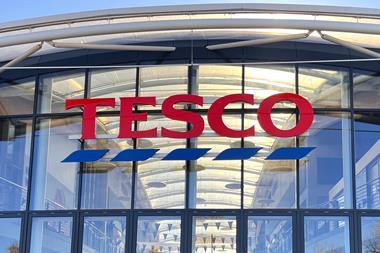


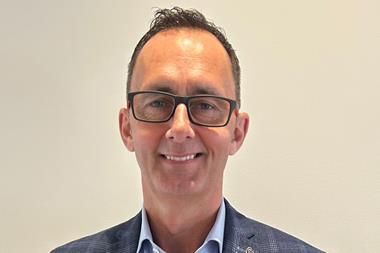
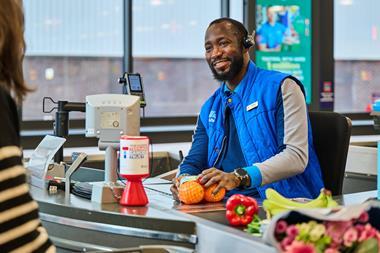

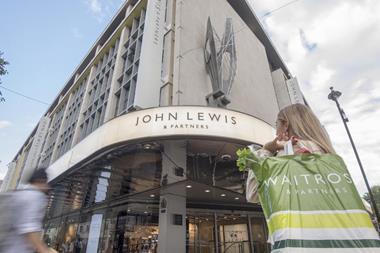
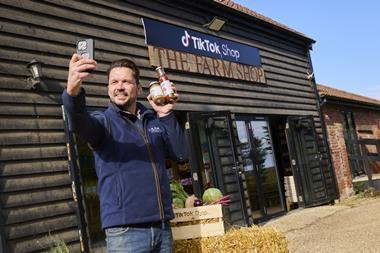


No comments yet